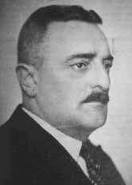A Quote by George Henry Lewes
Our native susceptibilities and acquired tastes determine which of the many qualities in an object shall most impress us, and be most clearly recalled. One man remembers the combustible properties of a substance, which to another is memorable for its polarising property; to one man a stream is so much water-power, to another a rendezvous for lovers.
Related Quotes
In our own native land, in defense of the freedom that is our birthright and which we ever enjoyed till the late violation of it. For the protection of our property, acquired solely by the honest industry of our fore-fathers and ourselves, against violence actually offered, we have taken up arms. We shall lay them down when hostilities shall cease on the part of the aggressors, and all danger of their being renewed shall be removed, and not before.
Every human being lived behind an impenetrable wall of choking mist within which no other but he existed. Occasionally there were the dim signals from deep within the cavern in which another man was located so that each might grope toward the other. Yet because they did not know one another, and could not understand one another, and dared not trust one another, and felt from infancy the terrors and insecurity of that ultimate isolation there was the hunted fear of man for man, the savage rapacity of man toward man.
We live in the hope and faith that, by the advance of molecular physics, we shall by-and-by be able to see our way as clearly from the constituents of water to the properties of water, as we are now able to deduce the operations of a watch from the form of its parts and the manner in which they are put together.
Our breath is the most precious substance in our lives, and yet we totally take for granted when we exhale that our next breath will be there. If we did not take another breath, we would not last 3 minutes. Now if the Power that created us has given us enough breath to last for as long as we shall live, can we not trust that everything else we need will also be supplied?
The power of perpetuating our property in our families is one of the most valuable and interesting circumstances belonging to it, and that which tends most to the perpetuation of society itself. It makes our weakness subservient to our virtue; it grafts benevolence even upon avarice. The possession of family wealth and of the distinction which attends hereditary possessions (as most concerned in it,) are the natural securities for this transmission.
The upholder of the cycles which sustain all Life is water. In every drop of water dwells a deity whom indeed we all serve. There also dwells Life, the soul of the primal substance - water - whose boundaries and banks are the capillaries that guide it, and in which it circulates. Every pulse beat arising through the interaction of will and resistance is indicative of creative work and urges us to care for those vessels, those primary and most vital structures, in which throbs the product of a dualistic power - Life
The hostility perpetually exercised between one man and another, is caused by the desire of many for that which only few can possess. Every man would be rich, powerful, and famous; yet fame, power, and riches, are only the names of relative conditions, which imply the obscurity, dependence, and poverty of greater numbers.
Wrongs are often forgiven, but contempt never is. Our pride remembers it forever. It implies a discovery of weakness, which we are more careful to conceal than a crime. Many a man will confess his crimes to a friend; but I never knew a man that would tell his silly weaknesses to his most intimate one.
Waste cannot be accurately told, though we are sensible how destructive it is. Economy, on the one hand, by which a certain income is made to maintain a man genteelly; and waste, on the other, by which on the same income another man lives shabbily, cannot be defined. It is a very nice thing; as one man wears his coat out much sooner than another, we cannot tell how.
Thirdly, the supreme power cannot take from any man any part of his property without his own consent: for the preservation of property being the end of government, and that for which men enter into society, it necessarily supposes and requires, that the people should have property, without which they must be supposed to lose that, by entering into society, which was the end for which they entered into it; too gross an absurdity for any man to own.







































